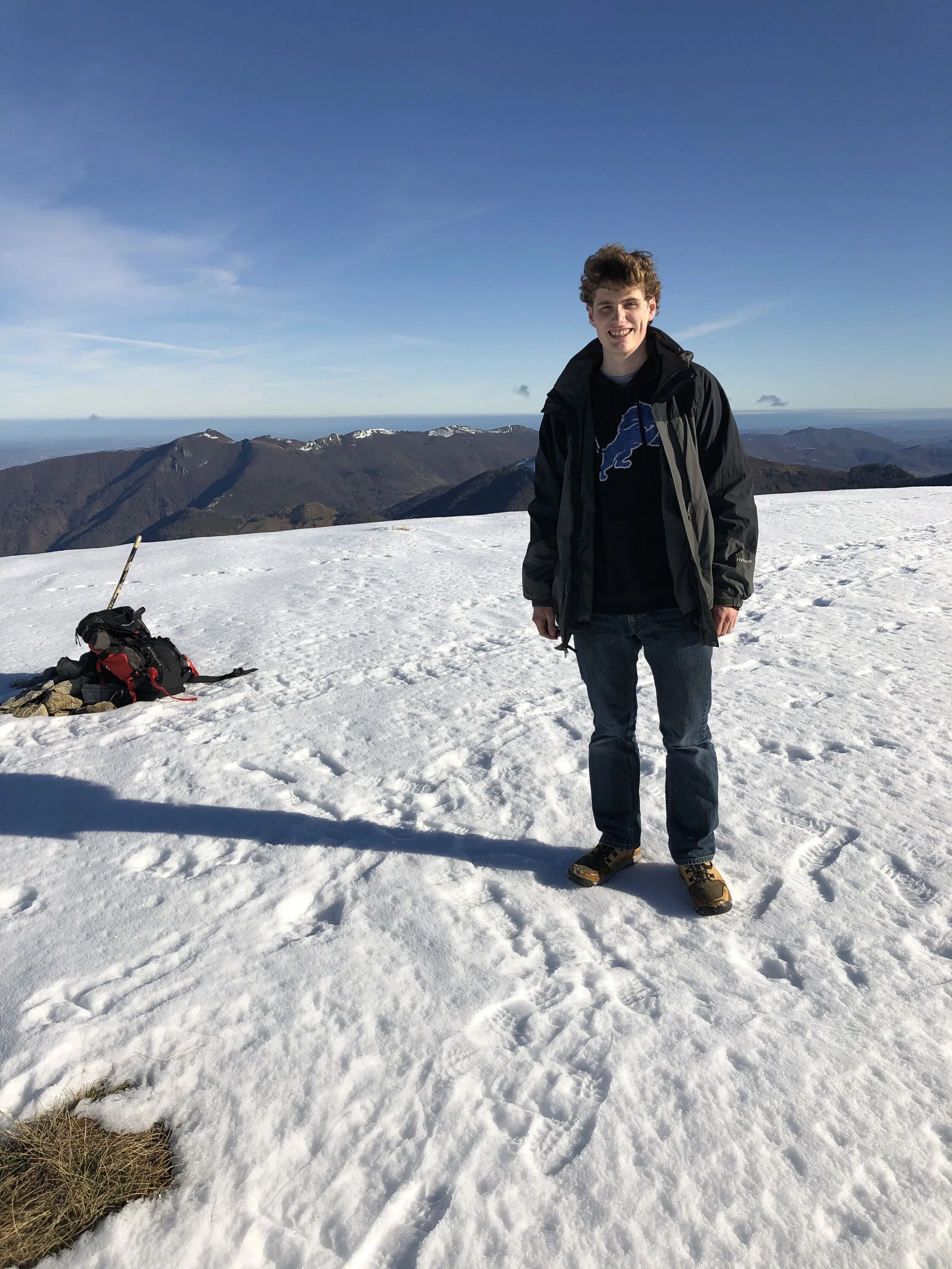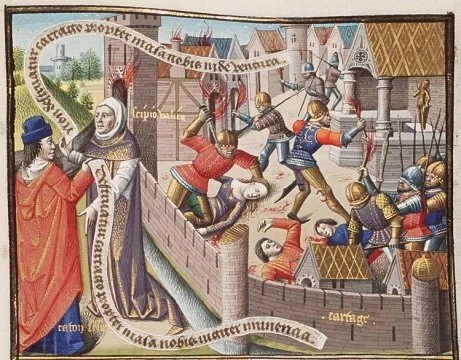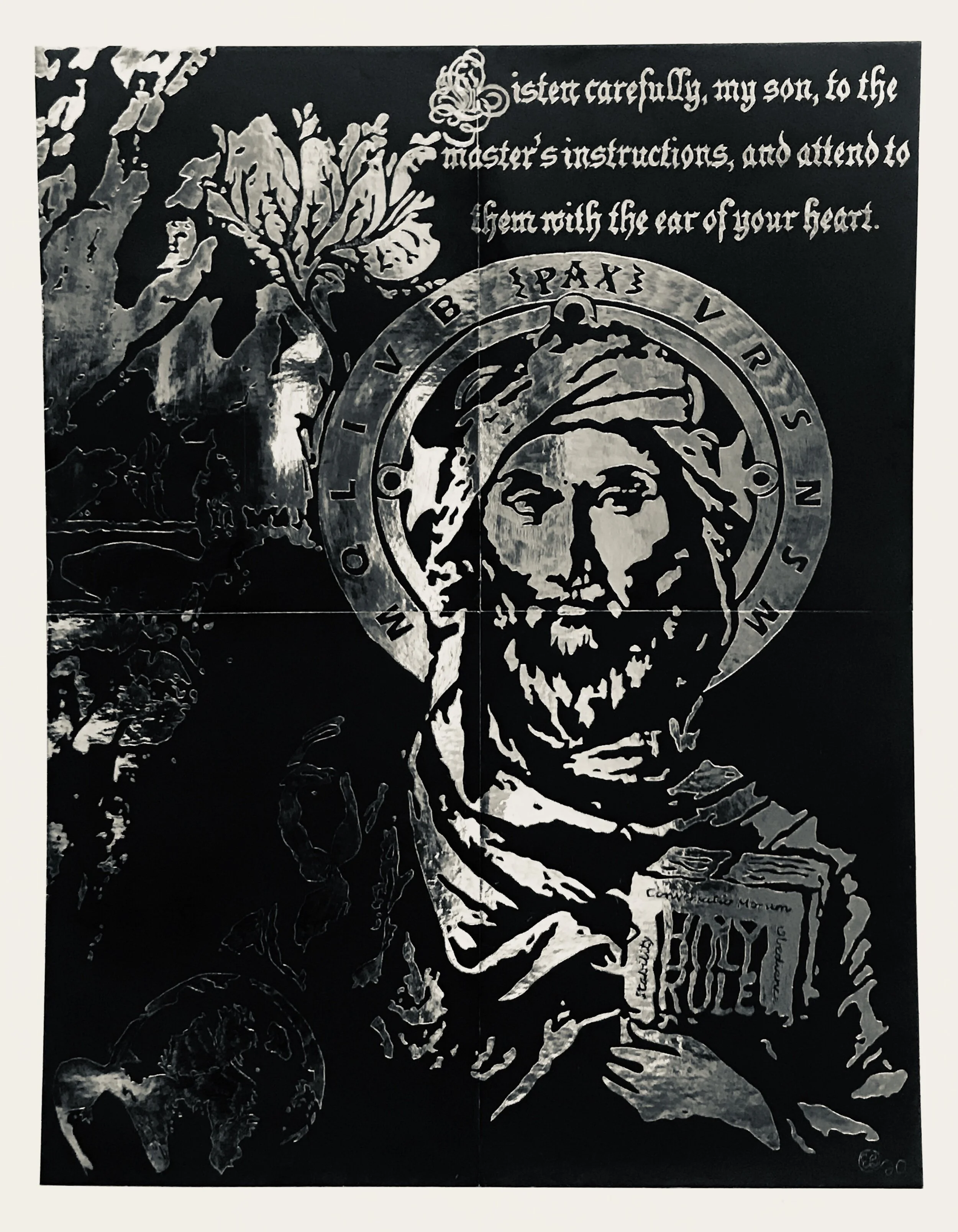Exodus 365
This summer Fr. Nick and Carly launched the Exodus 365 program. We asked them to share a bit about why they started this program and what it looks like for our students. Here is what they said:
Fr. Nick meeting with an Exodus 365 group over Zoom.
Exodus 90 is a three month marathon of prayer, fellowship, and sacrifice. In terms of spiritual growth, it is also one of the most successful ministries that the Saint Benedict Institute runs. The end of the Exodus 90 program each year presents us with several questions. How do we help maintain the relationships that have been formed amongst the students? What can be done to help them continue in the life of prayer? Is there a way to assist them in maintaining helpful spiritual disciplines?
It is easy to think that after completing such a rigorous program one’s work in the spiritual life could go on autopilot without any danger of regression. Of course, this is not the case. It is an old maxim in the spiritual life that those who are not going forward are going backward. In the previous two years of running the Exodus 90 program we found that even students who made great progress drawing closer to the Lord could fall back into old habits or simply lose the new spiritual discipline they had acquired. Moreover, many students wanted to continue with certain disciplines and tried to on their own with little lasting success.
Carly meeting with an Exodus 365 participant over Zoom.
Our answer to this problem is Exodus 365. It’s not as crazy as it sounds, we promise! Simply doing the full exodus program for a year would not mirror the Church’s practice of alternating between fasting and feasting. The idea of Exodus 365 is to help students engage in the spiritual life everyday knowing that some seasons will be more intense than others. The students will take on 90 days of the full Exodus program spread throughout Lent, Advent, and in week long intervals during the traditional Ember days. This will include various types of dietary and electronic fasting as well as cold showers. In between these seasons is a low intensity program that includes small group meetings, prayer, exercise, a healthy sleep schedule, and a discipline of the students choosing.
The response so far has been heartening. About 25 students, split almost evenly between men and women, have signed up. Exodus 365 also continues the ecumenical spirit of Exodus 90 since about half of the participants are not Catholic. The hope is that this time of continual fellowship and sacrifice together will strengthen those friendships and also help prepare leaders for the Exodus 90 program in the coming year. We hope you will join in our ministry by supporting these young men and women in this endeavor through your prayers.

























